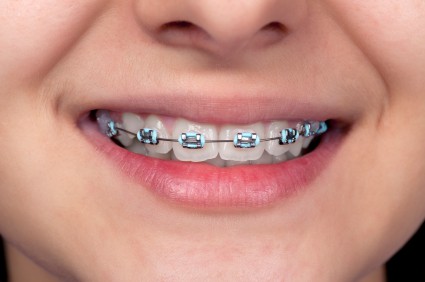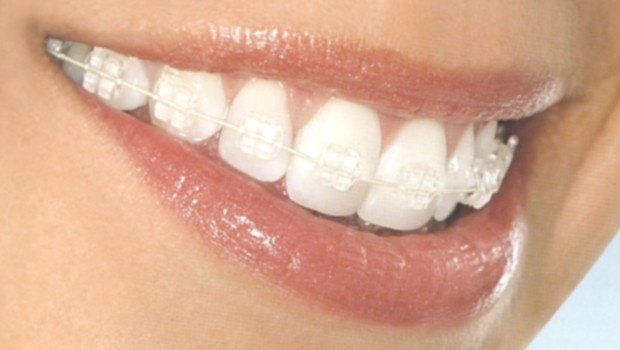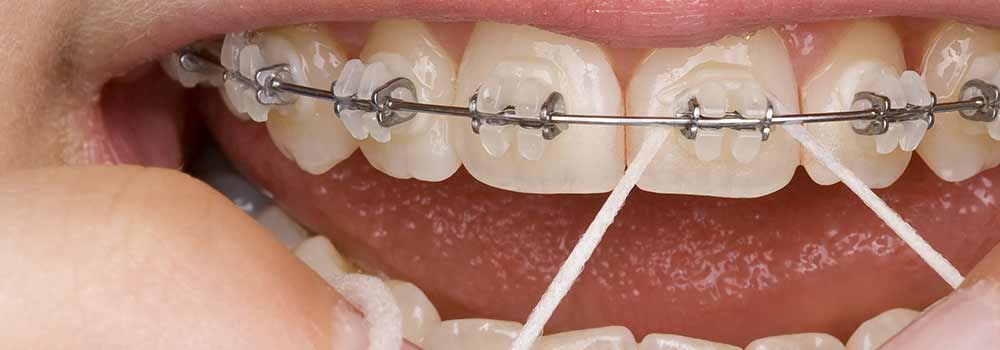Braces Basics to Consider

This week our topic of conversation is on orthodontics. Dr. Dhaliwal will go over everything you need to know about braces, from when your child should get them to how they can keep them clean.
Why do Kids Need Braces
There are numerous reasons why your child may need braces. When a dentist recommends braces it is usually to improve the child’s oral health and not necessarily for cosmetic purposes only. If your child’s teeth are overlapping, crooked or overcrowded then it can be difficult for them to keep them clean.
If your child’s teeth are protruding out, they can damage them if they fall or get hit in the mouth. It may also make it harder for them to close their lips all the way or make speech difficult.
An open bite, where the front teeth don’t hit each other will make it difficult for your child to bite down on foods, such as apples. Often open bites are often caused by extended use of the pacifier or a thumb-sucking habit. With early intervention, this can often be corrected.
What Age Should my Child Get Them?
There is no right or wrong answer when your child should get braces. Every child has different dental issues or none. If you start seeing any crowding or alignment issues, it is never too early to discuss with your child’s dentist about the possibility of braces. The American Academy of Orthodontists recommends a consultation at age 7 to discuss the need for orthodontics. A typical age that an orthodontist will start treating children is between 10 to 14. This age will facilitate the teeth shifting faster since the child is growing faster which can mean less time in braces for them.
If you notice issues early on talk to your child’s dentist about getting a consult sooner. Some orthodontists can provide an early orthodontic phase to help your child not be in braces as long when they get older. Although your child may have to be in braces twice, less time in braces means the less likely your child will get cavities around them.
Seeing an orthodontist early does not necessarily mean that treatment will start right away. The orthodontist will determine a course of action and figure out the best timing for your child.
Types of Braces

There are several types of braces now. All of them use some sort of pressure on your teeth to shift them into a correct position.
The most typical type of braces consists of metal brackets and bands. The brackets attach to the front of the teeth and the bands wrap completely around the molars. With metal braces, often rubber rings and bands are used. The metal brackets can sometimes even go behind the teeth, depending on what type of movement is needed.
The metal braces can also come with a white coating over them or can be ceramic to mask the metal look. These will still provide the same force as the metal ones but are more esthetic.
 A more popular type of braces in recent years are clear removable aligners. These are plastic trays, also known as aligners, that the patient takes in and out of their mouth. Aligners are great for maintaining oral hygiene since the patient can brush and floss normally. These types of braces only work if they are in your mouth. Patient compliance can determine whether these are a good alternative for you or your teenager.
A more popular type of braces in recent years are clear removable aligners. These are plastic trays, also known as aligners, that the patient takes in and out of their mouth. Aligners are great for maintaining oral hygiene since the patient can brush and floss normally. These types of braces only work if they are in your mouth. Patient compliance can determine whether these are a good alternative for you or your teenager.
How to Keep Your Teeth Clean with Orthodontics
Patients with braces need to pay a little extra attention to their teeth. Flossing daily and brushing after each meal can help prevent cavities. Brackets and wires are food traps and need proper cleaning with brushing, flossing, and a water pik can help as well. An addition of fluoride mouth rinse or fluoride treatments can help prevent staining and cavities.

Things to avoid are hard and sticky foods, such as popcorn, ice, gum, and caramels, which can pop off the brackets or bend the wires. If any part of your braces becomes damaged make sure to call your orthodontist right away. Avoid drinking excessive amounts of juices and sodas which can cause cavities.
For patients that are wearing the clear aligners it is important to take them off before eating. Also, it is important to not drink anything besides water when wearing the aligners.
Will Braces Hurt
Braces work by applying a small amount of pressure to the tooth in order to move it. At each visit, the orthodontist will tighten the wires which will apply more pressure. This pressure, especially at the first appointment can cause mild discomfort. Taking over the counter pain medications before and after your appointment as well as a soft food diet can help alleviate the discomfort.
Sometimes the ends of the wires or brackets can cause some irritation of the lips or cheeks. Using orthodontic wax to cover any sharp edges can really help cut down on the irritation. If your encounter extremely sharp edges that are painful make sure your orthodontist is aware.
Orthodontics can be a long process but in the end, a lifetime of a corrected bite is worth it. Call to make an appointment with Dr. Dhaliwal if you have any questions about braces for either you or your child.



